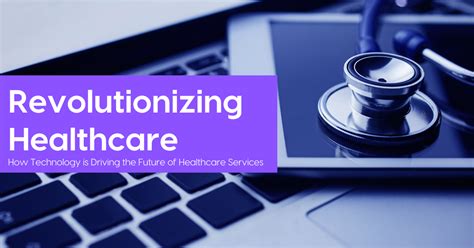The healthcare industry is on the cusp of a revolution, and at the heart of this transformation is technology. The development of innovative heart tech is set to revolutionize the way we diagnose, treat, and manage cardiovascular diseases. In this article, we will explore the latest advancements in heart tech, their potential impact on patient care, and what the future holds for this exciting field.
The Current State of Heart Health
Cardiovascular disease (CVD) is one of the leading causes of death worldwide, accounting for over 17.9 million deaths per year. In the United States alone, CVD affects over 121 million adults, with the total cost of CVD estimated to exceed $500 billion annually. The current approach to heart health relies heavily on reactive measures, such as treating symptoms and managing risk factors. However, this approach often falls short, and many patients continue to experience poor outcomes.
The Rise of Heart Tech
Heart tech, also known as cardiovascular technology, refers to the use of innovative technologies to improve cardiovascular health. This includes a range of devices, software, and analytics that aim to prevent, diagnose, and treat CVD. Some of the most exciting advancements in heart tech include:
- Wearable devices: Wearable devices, such as smartwatches and fitness trackers, can monitor heart rate, blood pressure, and other vital signs in real-time. This allows for early detection of potential issues and enables patients to take proactive steps to manage their heart health.
- Artificial intelligence (AI): AI-powered algorithms can analyze large datasets to identify patterns and predict patient outcomes. This enables healthcare providers to make more informed decisions and develop personalized treatment plans.
- Telemedicine: Telemedicine platforms enable remote consultations and monitoring, reducing the need for hospital visits and improving patient access to care.

Benefits of Heart Tech
The benefits of heart tech are numerous and far-reaching. Some of the most significant advantages include:
- Improved diagnosis: Heart tech enables earlier and more accurate diagnosis of CVD, allowing for timely interventions and improved patient outcomes.
- Personalized treatment: Heart tech allows for personalized treatment plans, tailored to each patient's unique needs and circumstances.
- Increased accessibility: Heart tech expands access to care, particularly for underserved populations and those living in remote or rural areas.
- Reduced costs: Heart tech has the potential to reduce healthcare costs by reducing hospital readmissions, emergency department visits, and other costly interventions.
The Future of Heart Tech
As heart tech continues to evolve, we can expect to see even more innovative solutions emerge. Some of the most promising developments on the horizon include:
- Advanced biomarkers: New biomarkers, such as those detected through wearable devices, will enable earlier detection and more accurate diagnosis of CVD.
- Cardiovascular genomics: The integration of genomics and cardiovascular medicine will enable personalized treatment plans and improved patient outcomes.
- Robot-assisted interventions: Robot-assisted interventions, such as robotic surgery, will enable more precise and minimally invasive procedures.

Challenges and Limitations
While heart tech holds tremendous promise, there are also challenges and limitations to consider. Some of the most significant concerns include:
- Data security: The collection and storage of sensitive patient data raise concerns about data security and patient confidentiality.
- Regulatory frameworks: The development of heart tech is outpacing regulatory frameworks, creating uncertainty and confusion for manufacturers and healthcare providers.
- Accessibility and equity: Heart tech may exacerbate existing health disparities, particularly if access to these technologies is limited to certain populations.
Conclusion
The future of heart tech is bright, with the potential to revolutionize the way we diagnose, treat, and manage cardiovascular diseases. As this field continues to evolve, it is essential to address the challenges and limitations that arise, ensuring that heart tech is accessible, equitable, and safe for all patients. By harnessing the power of heart tech, we can improve patient outcomes, reduce healthcare costs, and create a healthier future for generations to come.
Gallery of Heart Tech






Frequently Asked Questions
What is heart tech?
+Heart tech refers to the use of innovative technologies to improve cardiovascular health.
How does heart tech improve patient care?
+Heart tech enables earlier and more accurate diagnosis of CVD, allows for personalized treatment plans, and expands access to care.
What are some of the challenges associated with heart tech?
+Some of the challenges associated with heart tech include data security concerns, regulatory frameworks, and accessibility and equity issues.
